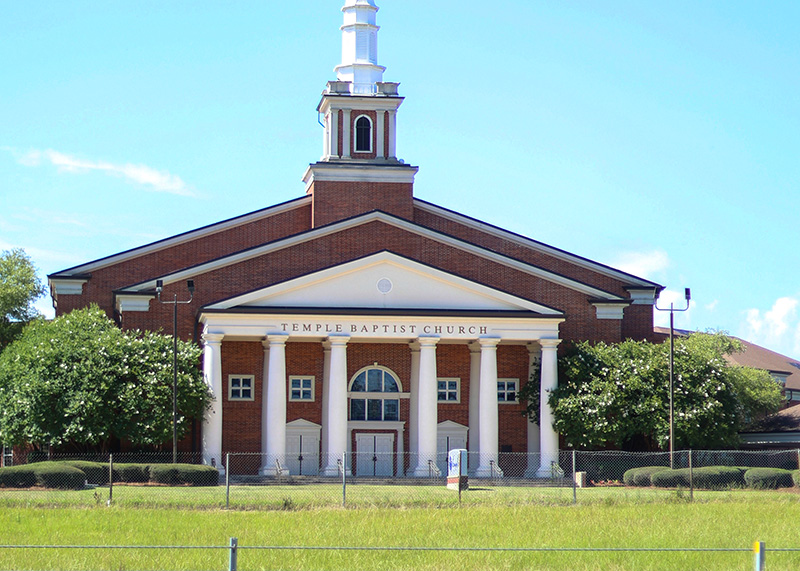The politics of Indiana’s religious freedom law

Mike Pence looked like a man with a lot on his mind.
Standing at a podium in the Indiana State Library on Tuesday, Pence shuffled his notes for several seconds before looking up at the throngs of cameras and reporters gathered to hear what the Republican governor had to say about a new law bearing his signature that is facing harsh criticism from corporate America to the White House.
“It’s been a tough week here in the Hoosier State,” Pence said, his heavy breathing audible to those watching on television. “But we’re going to move forward.”
Less than one week earlier, on March 26, Pence signed the Religious Freedom Restoration Act, sparking backlash that has only intensified in recent days. The bill, advocates argue, would open the door to discrimination and allow business owners to refuse services to LGBT people by citing their religious beliefs.
Soon after Pence signed the bill behind closed doors, criticism began to pour in. Former Secretary of State Hillary Clinton took to Twitter, stating it was “sad” such legislation could become law in America today and that people should not be discriminated against because of who they love. White House press secretary Josh Earnest said the signing of the bill “doesn’t seem like it’s a step in the direction of equality and justice and liberty for all Americans.” Connecticut, New York and D.C. all banned nonessential state-funded travel to Indiana. Parks and Recreation star Nick Offerman canceled an upcoming comedy show over the law and said all proceeds from a Wednesday show at Indiana University would be donated to the Human Rights Campaign. And perhaps most compelling of all, corporate America flexed its muscles, with CEOs from Apple to Yelp and Angie’s List blasting the bill as discriminatory and threatening to take their business elsewhere.
“Was I expecting this kind of backlash? Heavens, no!” Pence said Tuesday. But he also insisted the law does not permit discrimination, all while urging state lawmakers to deliver to him this week a legislative “fix” that would make clear the law does not permit discrimination against LGBT people. “This law has been smeared,” he said, blaming a perception problem that has taken hold across the country thanks to mischaracterizations by opponents and “sloppy reporting” by the national press that he has found “deeply offensive.”
“I don’t believe for a minute that it was the intention of the general assembly to create a right to discriminate and it certainly wasn’t my intent,” Pence said. “I don’t support discrimination against gays or lesbians or anyone else. I abhor discrimination.”
But while Pence vowed to fix a bill that he also does not seem to think needs fixing were it not for national outcry, a number of Republicans with their eyes on the White House appeared to have rallied around Pence a bit too early. One day prior, former Florida Gov. Jeb Bush blamed outrage on a misunderstanding of the law. “If they actually got briefed on the law they wouldn’t be blasting this law. I think Governor Pence has done the right thing,” Bush told radio host Hugh Hewitt.
“We’re going to need this,” Bush continued. “This is really an important value for our country to, in a diverse country, where you can respect and be tolerant of people’s lifestyles, but allow for people of faith to be able to exercise theirs.”
Other likely candidates for the Republican presidential nomination, including Ted Cruz, Marco Rubio, Mike Huckabee, Rick Perry, Rick Santorum and Bobby Jindal, all voiced their support for the Indiana law before Pence’s Tuesday press conference. Former Maryland Gov. Martin O’Malley, a potential candidate for the Democratic presidential nomination, called GOP support of the Indiana law “shameful” and the Democratic National Committee blasted Republicans for being stuck in the past and wanting to move the country backwards — an indication that the debate over religious liberty and LGBT rights could easily spill into the 2016 presidential race.
Indiana’s religious freedom law is broader than those on the books in other states. Unlike the federal Religious Freedom Restoration Act signed by President Bill Clinton in 1993, which Pence cited numerous times during his press conference, the Indiana law is explicit in allowing individuals to cite the state law in lawsuits where the government is not party to the case. On Tuesday, even White House press secretary Josh Earnest accused Pence of trying to “falsely suggest” the Indiana law and federal law are the same. “That is not true,” Earnest said.
Moreover, Indiana has no statewide LGBT nondiscrimination protections. Many LGBT-rights advocates have insisted the only viable fix to the bill, other than full repeal, is for Indiana to adopt nondiscrimination protections for LGBT people, and a bill that would do just that has been introduced.
Asked if he would sign into law such protections if they reached his desk, Pence demurred. While repeating that he abhors discrimination, Pence said he has never supported nondiscrimination protections for LGBT people and that it is not on his agenda. “That’s a separate question that ought to be considered separate from this idea of religious liberty,” Pence said. (When Pence ran for Congress in 2000 his campaign website stated Congress should “oppose any effort to recognize homosexual’s as a ‘discreet and insular minority’ entitled to the protection of anti-discrimination laws similar to those extended to women and ethnic minorities.”)
Although Pence would not say Tuesday whether the new law would allow business owners who provide services to weddings, such as florists, bakers and photographers, to refuse service to same-sex couples on the basis of their religious beliefs, it is clear where his supporters stand. “RFRAs are not intended to nor have they ever been used to deny anyone non-religious goods or services,” said Tony Perkins, president of the Family Research Council, in a statement. “We support such a clarification making clear RFRA does not impact non-religious goods or services.”
With the U.S. Supreme Court set to rule on nationwide marriage equality later this year, the onslaught of religious freedom bills seeking to erode gains made by LGBT people toward full equality are expected to continue. Despite the firestorm taking place in Indiana, other states are moving forward with identical legislation. Hours after Pence concluded his press conference on amending Indiana’s law, Arkansas lawmakers gave final approval to a religious freedom bill, which Republican Gov. Asa Hutchinson plans to sign.
Shortly after lawmakers sent the bill to Hutchinson’s desk, Walmart CEO Doug McMillon called on Hutchinson to veto the bill, stating it “threatens to undermine the spirit of inclusion present throughout the state of Arkansas.”
The new frontier in the fight for LGBT equality appears to have arrived.
Support Metro Weekly’s Journalism
These are challenging times for news organizations. And yet it’s crucial we stay active and provide vital resources and information to both our local readers and the world. So won’t you please take a moment and consider supporting Metro Weekly with a membership? For as little as $5 a month, you can help ensure Metro Weekly magazine and MetroWeekly.com remain free, viable resources as we provide the best, most diverse, culturally-resonant LGBTQ coverage in both the D.C. region and around the world. Memberships come with exclusive perks and discounts, your own personal digital delivery of each week’s magazine (and an archive), access to our Member's Lounge when it launches this fall, and exclusive members-only items like Metro Weekly Membership Mugs and Tote Bags! Check out all our membership levels here and please join us today!


























You must be logged in to post a comment.